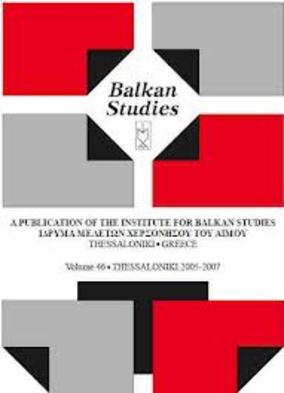The economic recession in Albania and Italian infiltration : The loan of 1931
Part of : Balkan studies : biannual publication of the Institute for Balkan Studies ; Vol.36, No.2, 1995, pages 265-296
Issue:
Pages:
265-296
Section Title:
Articles
Author:
Abstract:
During the period after the First World War, Albania was the leastdeveloped of the Balkan countries, as was apparent in all sectors of itseconomic life. The economic situation was further exacerbated in the early 1930s, when the effects of the world economic crisis began tomake themselves felt in the Balkans. As a profoundly underdevelopedcountry, Albania was much harder hit than the other Balkan states.Incapable of coping with the relentlessly mounting problems, the Albaniangovernment appealed for economic aid from Italy, Albania’s greatally, who was the only power that was prepared to make a loan whichno-one expected would ever be repaid. Italy’s main intention was togain complete control of the Albanian administration (as it had alreadydone with the army).According to the terms of the 1931 economic agreement, Italy wasundertaking to lend Albania ten million gold francs annually for the nextten years for the purpose of balancing the state budget and assisting thecountry’s development in the sectors of public works, economy, andeducation. With this agreement, the Italians attained their primary goal,which was total administrative and financial control over Albania: thecommittee that was to supervise the spending of the loan and theorganisers-advisors who were to be appointed to four vital ministrieswould form the base from which that control was exercised. If one bearsin mind that control of the army was also in Italian hands, it is clear howfar the Italians had already infiltrated the country.
Subject (LC):
Keywords:
Οικονομική ύφεση στην Αλβανία, Ιταλική διείσδυση, Δάνειο του 1931




